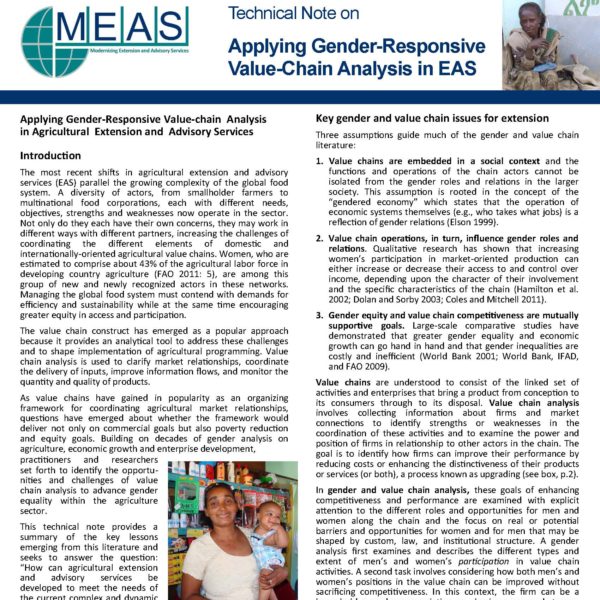The most recent shifts in agricultural extension and advisory services (EAS) parallel the growing complexity of the global food system. A diversity of actors, from smallholder farmers to multinational food corporations, each with different needs, objectives, strengths and weaknesses now operate in the sector. Not only do they each have their own concerns, they may work in different ways with different partners, increasing the challenges of coordinating the different elements of domestic and internationally-oriented agricultural value chains. Women, who are estimated to comprise about 43% of the agricultural labor force in developing country agriculture (FAO 2011: 5), are among this group of new and newly recognized actors in these networks. Managing the global food system must contend with demands for efficiency and sustainability while at the same time encouraging greater equity in access and participation.
Publication
Applying gender-responsive value chain analysis in (EAS)

Further Reading
Publication
Empowerment in agricultural value chains: Mixed methods evidence from the Philippines
April 28, 2020
Publication
Building an Inclusive Agriculture: Strengthening Gender Equality in Agricultural Value Chains
November 11, 2019
Cultural Practice, LLC
4300 Montgomery Ave., Suite 305
Bethesda, Maryland 20814
(tel.) 301-654-1787
(fax) 301-654-1789
